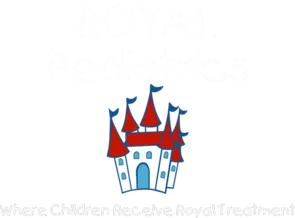Often times we're focused on our children's physical wellbeing and symptoms that may indicate health problems worthy of immediate care. But we neglect behavioral health unless and perceive it through the lens of appropriate and inappropriate behavior. It's more than that though!
At Royal Pediatrics, Dr. Clifford Seyler provides his patients and families with the tools to decipher between healthy and unhealthy behaviors. All three of his office locations (Fayetteville, Tullahoma, and Manchester, TN) diagnose symptoms that signal anxiety and autism, among others.
What Happens at a Behavioral Health Visit?
- Specialists take an initial evaluation by talking to you and your child.
- You can expect questions regarding behavior and for you to bring your child's teachers or therapist.
- You'll provide your child's
- medical history
- developmental milestones
- social skills
- daily habits.
- temperament
- attentiveness
- aggressiveness
- sleep
- interactions with peers
Top 5 Behavioral Health Tools
1. Properly define mental health.
Mental health includes emotional, psychological, and social well-being that affects a person's thoughts, feelings, and how we act, which determines how people cope with stress, relate to the people around them, and make healthy choices.
It's important to understand more about what mental health is to eliminate taboos, ask your Fayetteville, Tullahoma, or Manchester the right questions.
2. Types of Serious Mental Health Problems
Educate yourself about the types of health problems your child may be suffering from their symptoms and consult with your pediatrician. Types of serious diseases include suicide and homicidal tendencies, child abuse, drug or alcohol abuse, anxiety attacks or panic attacks, and depression.
3. Types of Non-Serious Behavior Problems
You also need to stay informed regarding diseases or conditions that aren't as serious and learn to discern how to differentiate between the two with your doctor. Examples include temper tantrums, sleep problems, toilet training problems, eating problems, and developmental delays.
4. Speak With Your Pediatrician
Work with your doctor to better understand behavioral health and for accurate resources to avoid misinformation.
5. Treatment
Treatment varies from one person to another. Your child may be going through a phase and need extra patience; they may be suffering from a more serious issue that needs therapy; or a condition that requires a doctor's prescription.
Would you like to speak with a behavioral health specialist?
If your child is exhibiting signs of behavioral health issues, call Royal Pediatrics in Fayetteville, Tullahoma, or Manchester by calling (931) 297-4400, (931) 455-2674, or (931) 954-5248 today to schedule a visit.
